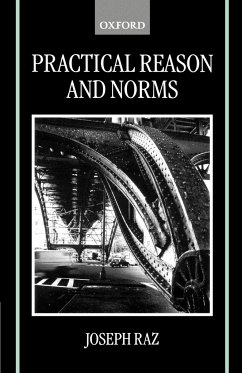Rules are a structure of reasons to perform the required act and an exclusionary reason not to follow some competing reasons. Exclusionary reasons are explained, and used to unlock the secrets of orders, promises, and decisions as well as rules. Games are used to exemplify normative systems. Inevitably, the analysis extends to some aspects of normative discourse, which is truth-apt, but with a diminished assertoric force.
In what way are rules normative, and how do they differ from ordinary reasons? What makes normative systems systematic? What distinguishes legal systems, and in what consists their normativity? Joseph Raz answers these three questions by taking reasons as the basic normative concept, and showing the distinctive role reasons have in every case, thus paving the way to a unified account of normativity.
In what way are rules normative, and how do they differ from ordinary reasons? What makes normative systems systematic? What distinguishes legal systems, and in what consists their normativity? Joseph Raz answers these three questions by taking reasons as the basic normative concept, and showing the distinctive role reasons have in every case, thus paving the way to a unified account of normativity.








